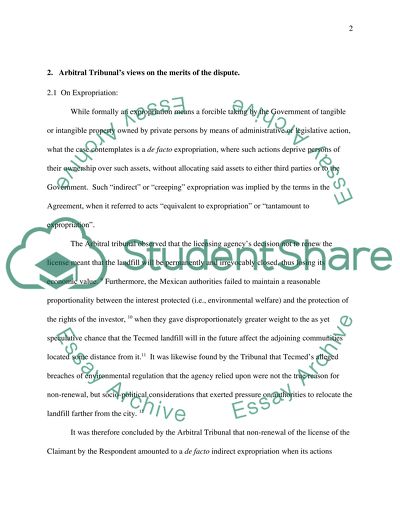Cite this document
(Tecnicas Medioambientales Tecmed Issues Case Study, n.d.)
Tecnicas Medioambientales Tecmed Issues Case Study. Retrieved from https://studentshare.org/law/1571311-tecnicas-medioambientales-tecmed-sa-v-the-united-mexican-states-icsid-case-no-arb-af002-award
Tecnicas Medioambientales Tecmed Issues Case Study. Retrieved from https://studentshare.org/law/1571311-tecnicas-medioambientales-tecmed-sa-v-the-united-mexican-states-icsid-case-no-arb-af002-award
(Tecnicas Medioambientales Tecmed Issues Case Study)
Tecnicas Medioambientales Tecmed Issues Case Study. https://studentshare.org/law/1571311-tecnicas-medioambientales-tecmed-sa-v-the-united-mexican-states-icsid-case-no-arb-af002-award.
Tecnicas Medioambientales Tecmed Issues Case Study. https://studentshare.org/law/1571311-tecnicas-medioambientales-tecmed-sa-v-the-united-mexican-states-icsid-case-no-arb-af002-award.
“Tecnicas Medioambientales Tecmed Issues Case Study”. https://studentshare.org/law/1571311-tecnicas-medioambientales-tecmed-sa-v-the-united-mexican-states-icsid-case-no-arb-af002-award.


